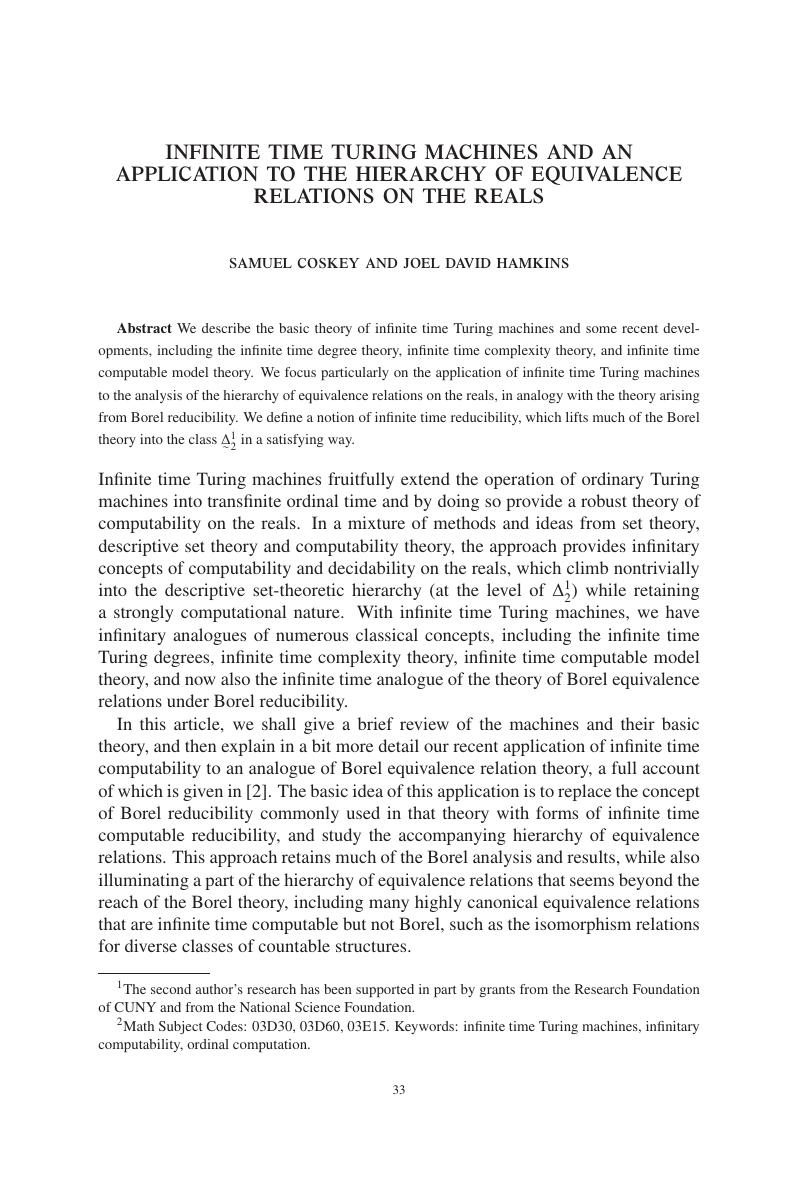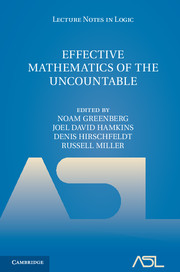Book contents
- Frontmatter
- Contents
- Preface
- Introduction
- Some results on ℝ-computable structures
- Infinite time Turing machines and an application to the hierarchy of equivalence relations on the reals
- Computable structure theory using admissible recursion theory on ω1 using admissibility
- Local computability and uncountable structures
- Borel structures: a brief survey
- E-recursive intuitions
- Reverse mathematics, countable and uncountable: a computational approach
- Effective model theory: approach via σ-definability
- References
Infinite time Turing machines and an application to the hierarchy of equivalence relations on the reals
Published online by Cambridge University Press: 05 December 2013
- Frontmatter
- Contents
- Preface
- Introduction
- Some results on ℝ-computable structures
- Infinite time Turing machines and an application to the hierarchy of equivalence relations on the reals
- Computable structure theory using admissible recursion theory on ω1 using admissibility
- Local computability and uncountable structures
- Borel structures: a brief survey
- E-recursive intuitions
- Reverse mathematics, countable and uncountable: a computational approach
- Effective model theory: approach via σ-definability
- References
Summary

Information
- Type
- Chapter
- Information
- Effective Mathematics of the Uncountable , pp. 33 - 49Publisher: Cambridge University PressPrint publication year: 2013
